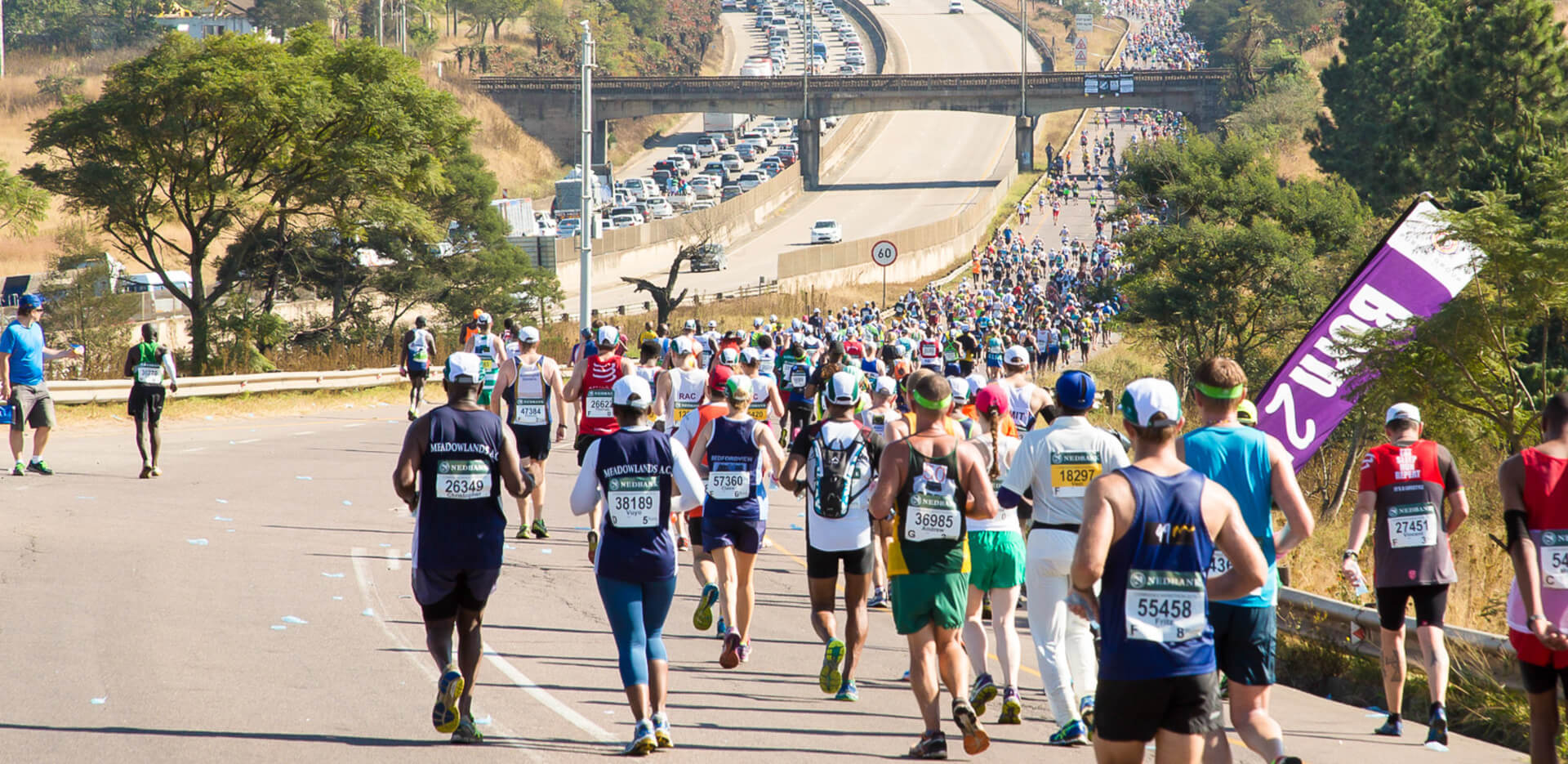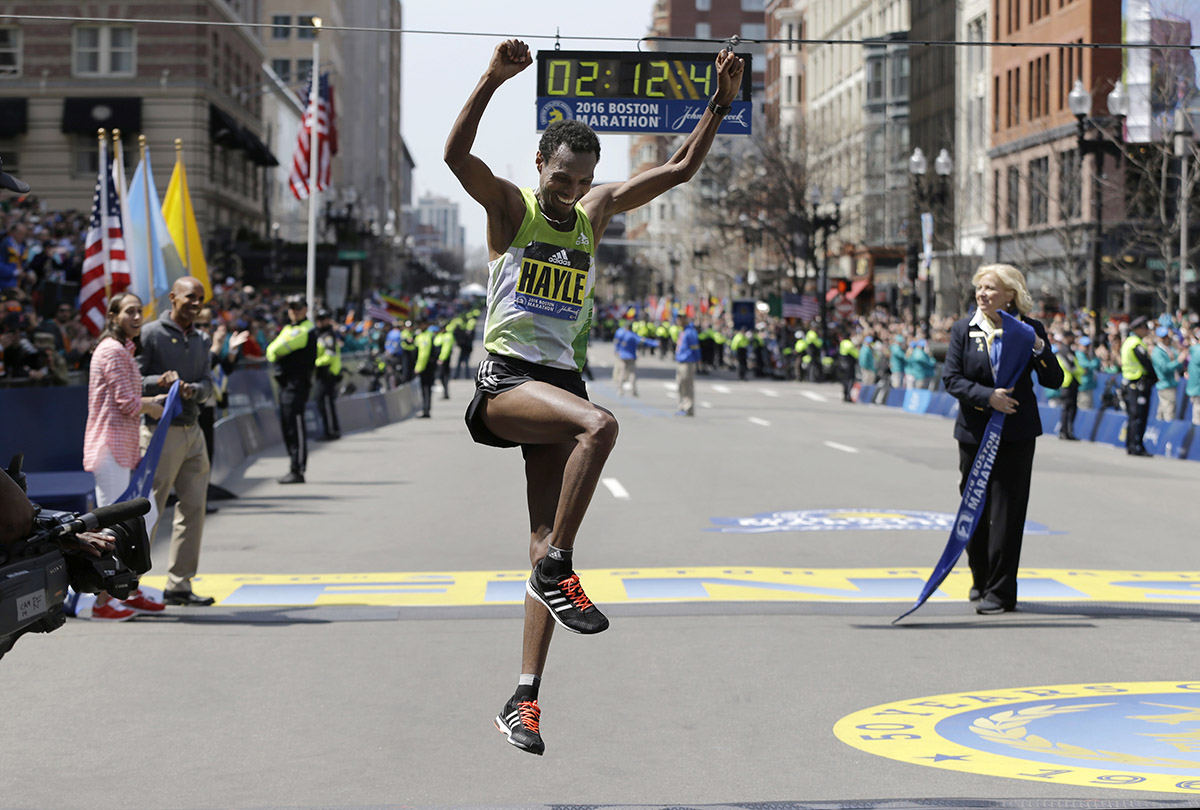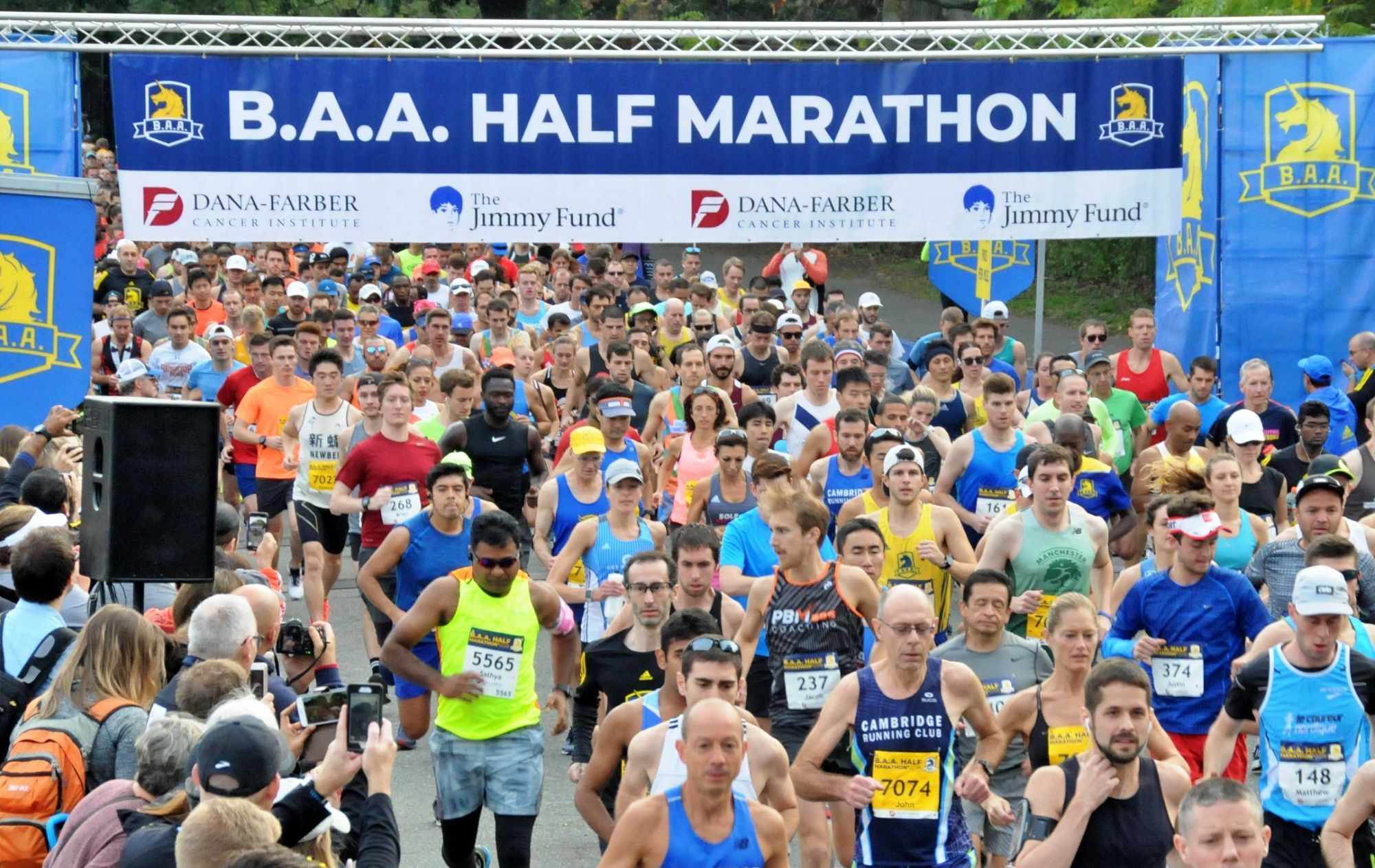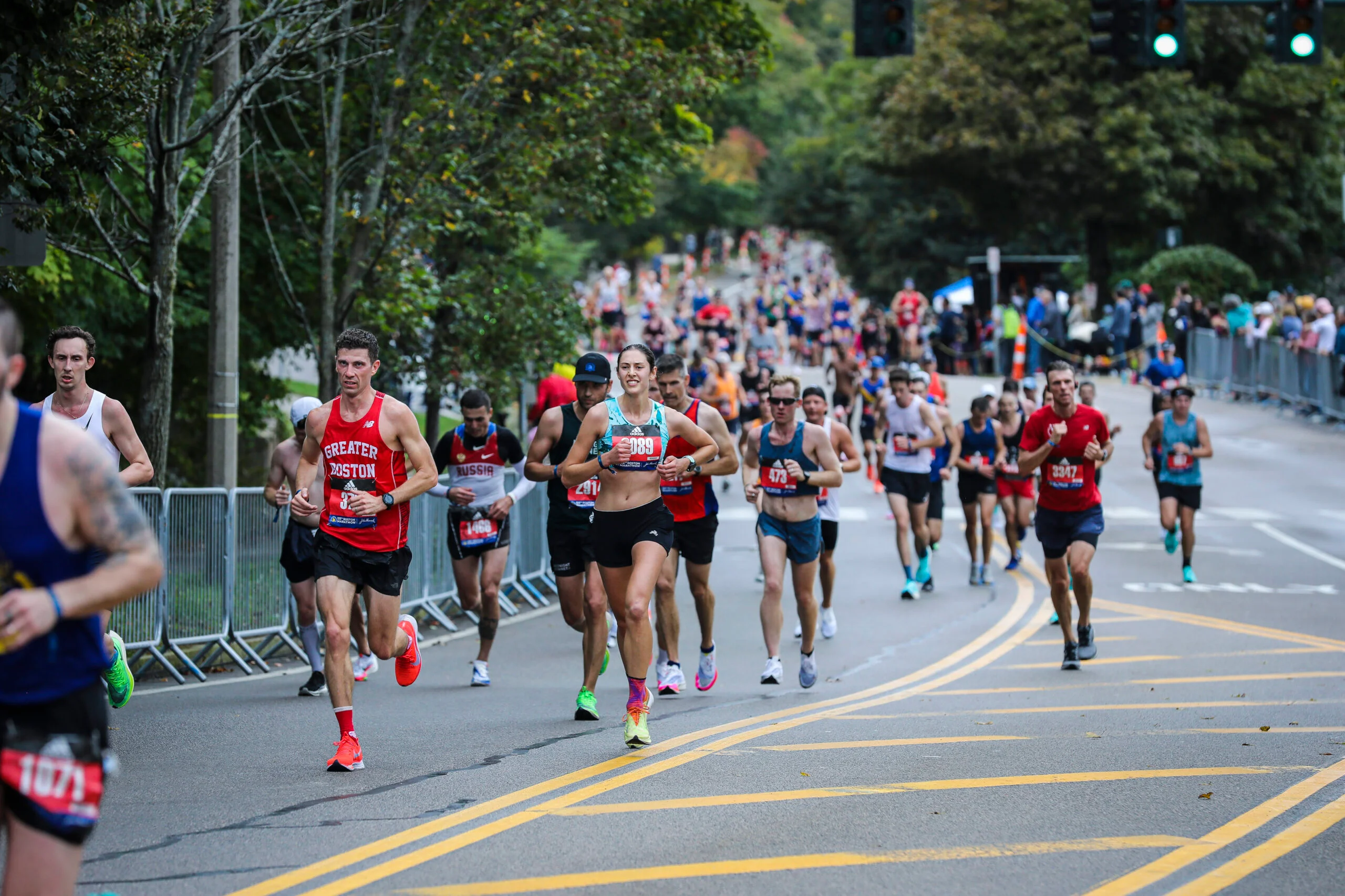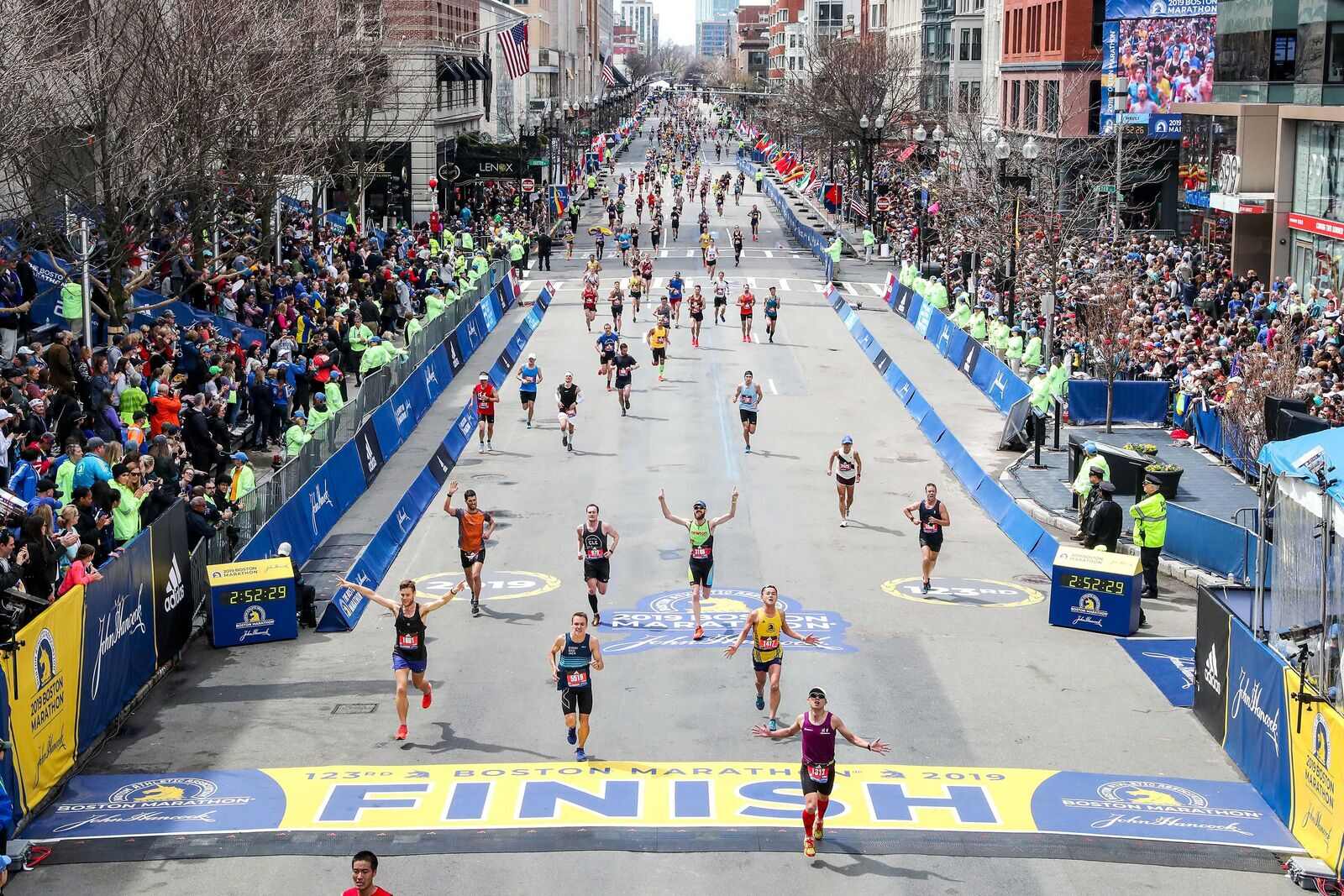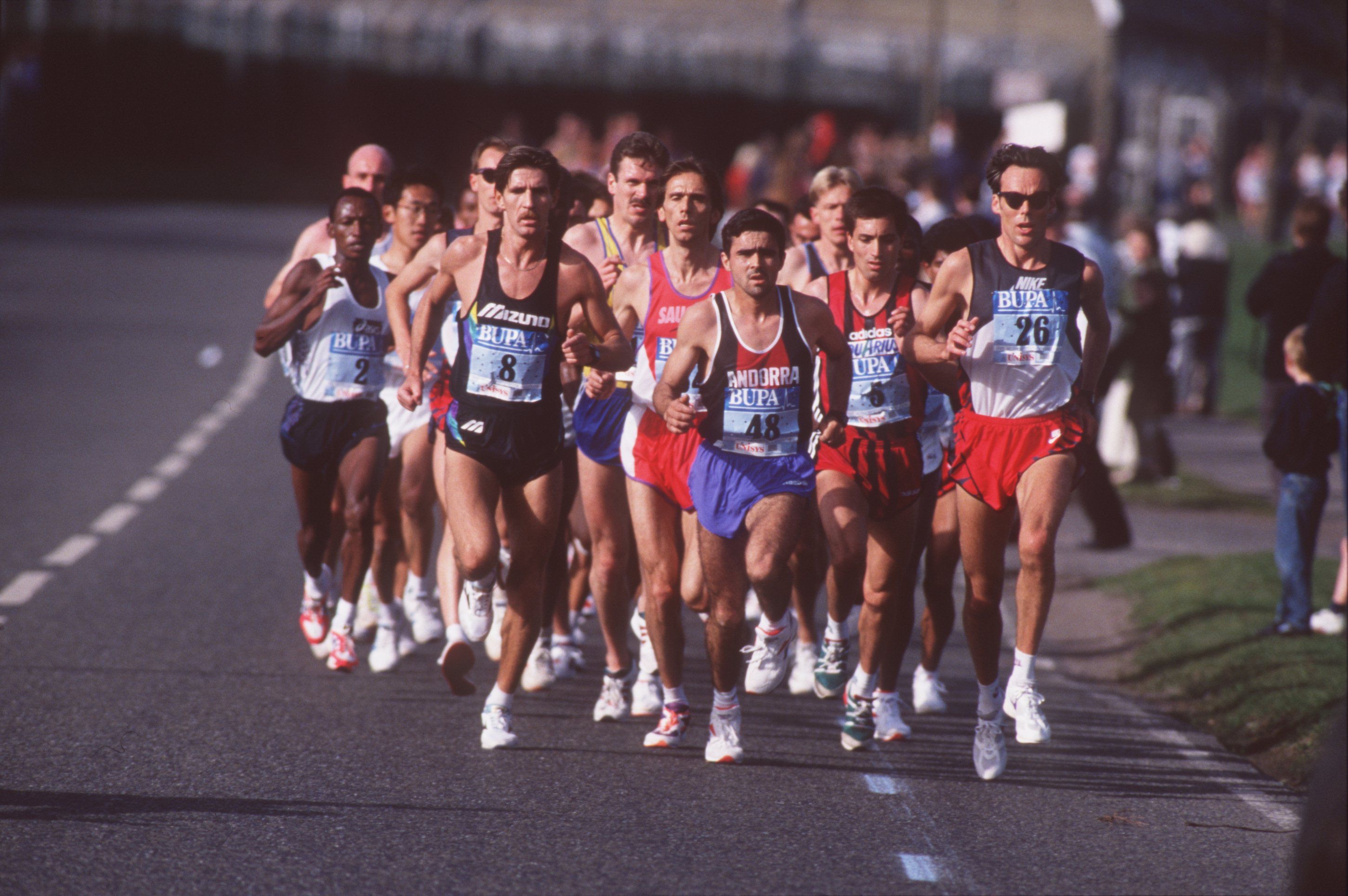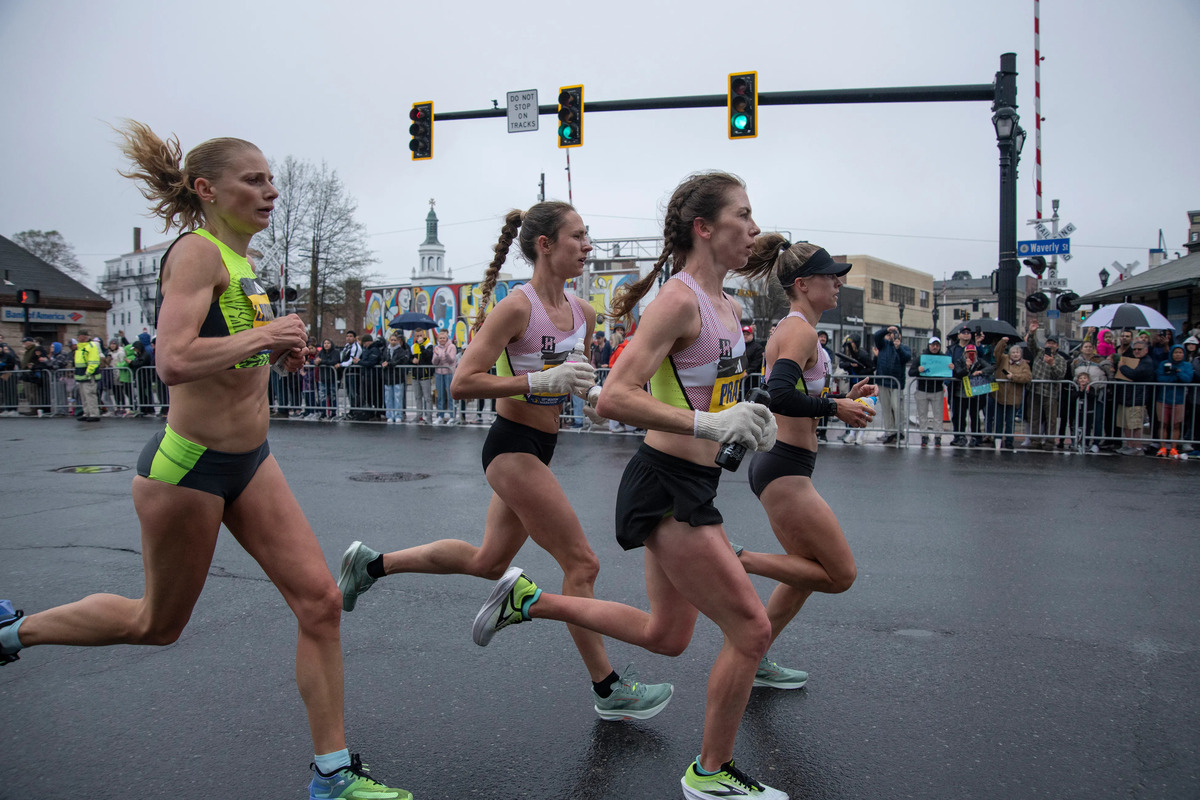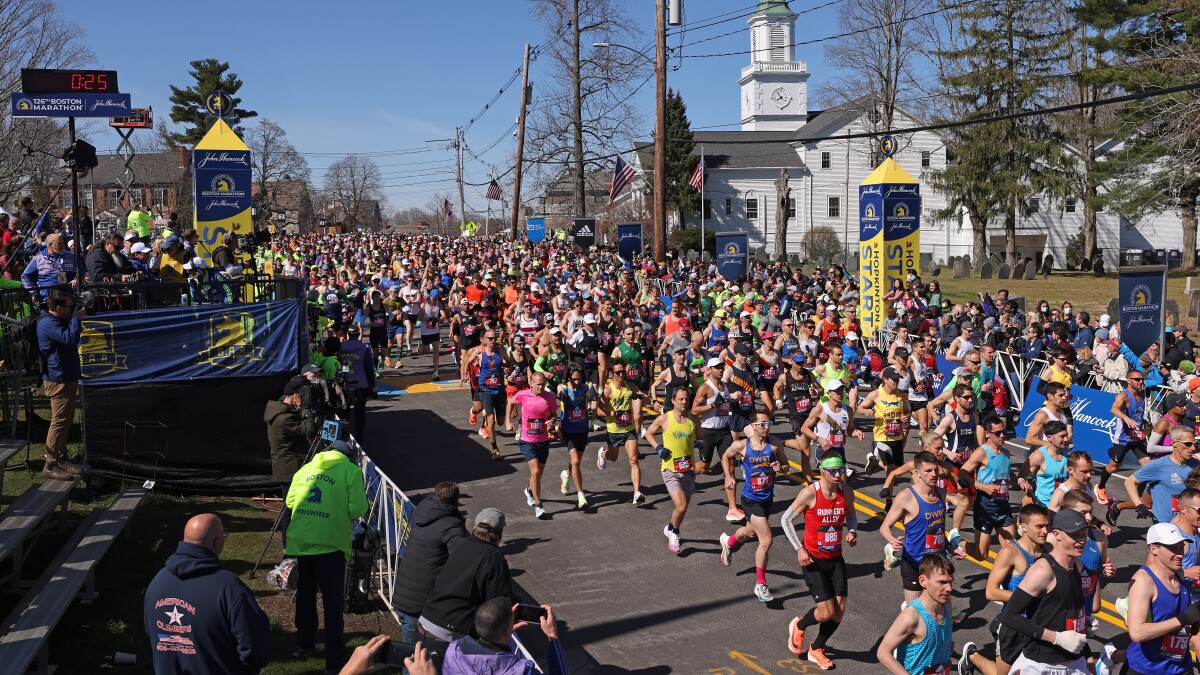

Featured
Why Is The Boston Marathon On A Monday
Modified: August 19, 2023
Discover why the Boston Marathon is held on a Monday and find out about its featured status in the world of marathons.
Introduction
Welcome to the Boston Marathon, one of the most prestigious and iconic road races in the world. Every year, thousands of runners from around the globe gather in Boston, Massachusetts to push themselves to the limit and cross the finish line on the famous Boylston Street. However, have you ever wondered why the Boston Marathon is always held on a Monday? In this article, we will explore the historical background, practical reasons, and symbolic significance of the Monday race day tradition.
The Boston Marathon has a rich history dating back to its inaugural running in 1897. Over the years, it has become the oldest annual marathon in the world, attracting elite athletes and dedicated amateurs alike. This iconic race holds a special place in the hearts of both the running community and the people of Boston.
One might assume that marathon races typically take place on weekends when participants have more time off from work or school. However, the Boston Marathon breaks this convention by holding the event on a Monday. This unique scheduling adds to the mystique and allure of the race, making it stand out from other marathons around the world.
While the tradition of the Monday race day may seem puzzling at first, it has a historical significance rooted in the holiday known as Patriot’s Day. Observed on the third Monday in April, Patriot’s Day commemorates the battles of Lexington and Concord, which marked the beginning of the American Revolutionary War. This public holiday allows people to have a day off, enabling both spectators and participants to fully immerse themselves in the marathon’s festivities.
Furthermore, the decision to hold the Boston Marathon on a Monday is not solely based on historical tradition; there are also practical reasons behind this choice. Organizers and city officials recognize that hosting a marathon of this magnitude requires extensive logistical planning and coordination. By scheduling the race on a Monday, it allows for a smoother flow of traffic on the city streets, minimizes disruptions to businesses, and ensures the safety of both runners and spectators.
Historical Background of the Boston Marathon
The Boston Marathon has a storied history that dates back over a century. It all began in 1897, when the first race took place with a mere 18 participants. The event was inspired by the success of the first modern Olympic Marathon, held in Athens in 1896. With the aim of creating a marathon race in the United States, the Boston Athletic Association (BAA) organized what would become a legendary event.
One of the key figures in the early years of the Boston Marathon was a man named John Graham. He played a pivotal role in the race’s development, including helping to establish the standard marathon distance of 26.2 miles. At the time, the distance varied from race to race, but Graham believed in creating a consistent and challenging course for runners.
Over the years, the Boston Marathon continued to grow in popularity, attracting more participants and spectators. In 1966, an iconic moment in the race’s history occurred when Roberta “Bobbi” Gibb became the first woman to complete the Boston Marathon, despite not being officially registered. Her determination and accomplishment paved the way for the inclusion of women’s divisions in subsequent races.
Another significant turning point came in 1984 when the Boston Marathon became the first major marathon to offer a prize purse for elite athletes. This move elevated the race’s status and attracted top-notch runners from around the world, further cementing its reputation as a must-attend event in the running community.
The Boston Marathon has also witnessed moments of tragedy and resilience. In 2013, the race was marred by a devastating bombing near the finish line, resulting in the loss of lives and numerous injuries. This act of terror shocked the world and deeply impacted the running community. However, in the face of adversity, the Boston Marathon emerged stronger than ever. The following year, in 2014, runners and spectators alike rallied together to honor those affected by the tragedy, showcasing the indomitable spirit and resilience that defines the race.
Throughout its history, the Boston Marathon has embodied the essence of a true marathon race – a test of perseverance, determination, and community. It has become a symbol of achievement and a celebration of the human spirit. Each year, as runners navigate the challenging course from Hopkinton to Boston, they not only compete against each other but also conquer personal goals and forge unforgettable memories.
Tradition of Monday Races
The tradition of holding the Boston Marathon on a Monday is ingrained in the race’s history and has become a beloved aspect of the event. While most races and marathons are typically held on weekends, the unique scheduling of the Boston Marathon adds to its charm and appeal.
One reason for the Monday race tradition is rooted in the event’s early days. Back in 1897, when the first Boston Marathon took place, organizers decided to hold it on a Monday to accommodate the work schedules of participants and spectators. Many people worked six days a week and had Sundays off, making Monday a more convenient day for a marathon race.
Furthermore, scheduling the race on a Monday allows runners to have a more relaxed and focused weekend leading up to the marathon. They can rest, taper their training, and make any last-minute preparations without the added stress of work or other commitments. This allows participants to be in their best physical and mental condition on race day.
Another aspect that adds to the allure of Monday races is the anticipation and excitement leading up to the event. With most people returning to work and school after the weekend, the city of Boston becomes abuzz with chatter about the upcoming marathon. The streets fill with the cheers and support of locals and visitors alike, creating an electrifying atmosphere that can only be found on a Monday race day.
The Monday tradition also provides an opportunity for runners and their families to spend the weekend in Boston and fully immerse themselves in the pre-race activities and festivities. From the expo to the pasta dinners to the charity events, the entire weekend becomes a celebration of running and community, establishing a unique sense of camaraderie among participants.
Moreover, the Monday race day tradition aligns with the marathon’s reputation as a prestigious and historic event. It sets the Boston Marathon apart from other races and adds a sense of exclusivity, making the achievement of participating and finishing even more special. This tradition has been passed down from generation to generation, creating a sense of connection and continuity among the running community.
Overall, the tradition of Monday races at the Boston Marathon holds a significant place in the race’s legacy. It pays homage to the origins of the event, provides practical benefits for participants, generates excitement, and contributes to the unique spirit of the Boston Marathon.
Practical Reasons for Monday Race
While the tradition of holding the Boston Marathon on a Monday has historical significance, there are also practical reasons behind this choice. Organizers and city officials have carefully considered the logistics and impact of hosting a marathon of such magnitude, and the decision to schedule it on a Monday serves both the runners and the local community.
One practical reason for the Monday race is traffic management. Boston is a bustling city with busy streets, and hosting a marathon requires careful coordination to minimize disruptions to everyday life. By holding the race on a Monday, when traffic tends to be lighter compared to weekdays, it allows for smoother flow and mobility. This mitigates the impact on commuters and reduces the potential for logistical challenges associated with road closures and diversions.
In addition to traffic management, hosting the Boston Marathon on a Monday allows businesses in the city to maintain operations with minimal disruptions. Most offices and establishments operate on weekdays, and shifting the race day to Monday ensures that businesses can continue functioning relatively unaffected. It allows employees and customers to navigate the city without significant hindrance, promoting a harmonious coexistence between the marathon and the local community.
Another practical benefit of a Monday race is the availability of medical and emergency support. Marathon races, especially ones as demanding as the Boston Marathon, require a strong presence of medical personnel, first responders, and support staff. By scheduling the event on a Monday, it ensures that these critical resources are more readily available compared to a weekend, when healthcare professionals and other essential personnel may be limited or occupied with other obligations.
The Monday race day also provides organizers with ample time for preparation and setup. Holding the race on a weekday allows for a longer period of time during the prior weekend to set up infrastructure, such as race signage, water stations, medical tents, and finish line structures. This ensures that everything is in place and runs smoothly on race day, contributing to a well-organized and successful event.
Furthermore, by having the race on a Monday, runners and spectators have the option of surrounding activities over the weekend. This includes attending pre-race expos, visiting the marathon Expo, exploring the city’s landmarks, and indulging in the local cuisine. The extended weekend allows participants to fully immerse themselves in the Boston Marathon experience and enjoy the vibrant atmosphere that surrounds the event.
Overall, the practical reasons for scheduling the Boston Marathon on a Monday are multifaceted. From traffic management to business operations to resource availability, careful consideration is given to ensure the smooth execution of the marathon, while minimizing disruption to the daily life of the city of Boston. The decision to hold the race on a Monday takes into account the well-being of the runners, the efficiency of event organization, and the mutual benefit of runners and the local community.
Importance of Patriot’s Day
Patriot’s Day holds immense significance in the context of the Boston Marathon. Observed on the third Monday in April, this holiday commemorates the battles of Lexington and Concord, which marked the beginning of the American Revolutionary War. The coincidence of the marathon and Patriot’s Day has created a powerful and meaningful connection between the race and the spirit of patriotism.
By aligning the Boston Marathon with Patriot’s Day, the organizers pay tribute to the historical significance of the marathon’s host city, Boston. The city played a pivotal role in the American Revolution and holds a special place in the nation’s history. The marathon’s connection to Patriot’s Day reinforces the enduring bond between the race, the city, and the ideals of independence and liberty.
Patriot’s Day is a public holiday, which means that many people have the day off work or school. This provides an opportunity for both runners and spectators to fully engage in the marathon experience. Participants have ample time to prepare, rest, and mentally focus on the race, while spectators can line the streets and cheer on the runners without the constraint of weekday obligations. This holiday atmosphere adds to the vibrancy and excitement of the marathon, creating a sense of unity and celebration.
Furthermore, Patriot’s Day serves as a reminder of the sacrifices made by those who fought for the freedom of the nation. The marathon becomes a symbol of resilience, perseverance, and the indomitable spirit of the American people. It is a day to honor and remember the courage and determination of the past while celebrating the achievements and dreams of the present.
Patriot’s Day also underscores the values of community and togetherness. The marathon brings people from all walks of life together – runners, spectators, volunteers, and organizers – to create a sense of unity and camaraderie. The holiday provides the opportunity for individuals and families to bond, support one another, and embrace the shared experience of a race that embodies the triumph of the human spirit.
Moreover, the symbolism of Patriot’s Day extends beyond the marathon itself. It serves as a reminder that the pursuit of freedom, justice, and happiness is an ongoing journey, one that requires dedication, sacrifice, and the collective efforts of a united community. The Boston Marathon, held on this auspicious day, embodies these values and reminds us of the power of determination and resilience.
Overall, the association of the Boston Marathon with Patriot’s Day adds a layer of historical and symbolic significance to the race. It creates a unique bond between the marathon, the city of Boston, and the American spirit of patriotism. The holiday provides a platform for unity, reflection, and celebration, fostering a deep sense of community and reminding us of the enduring values that make the Boston Marathon a truly extraordinary event.
Symbolism and Unity
The Boston Marathon is not just a race; it is a powerful symbol of unity, determination, and the indomitable human spirit. The race brings together thousands of participants and spectators from all walks of life, creating a sense of shared purpose and a tangible feeling of community.
One of the most significant aspects of the Boston Marathon is its ability to unite people. Runners from different countries, backgrounds, and abilities converge on the same starting line, bound by a common goal – to challenge themselves and cross the finish line. The marathon breaks through barriers and emphasizes that despite our differences, we are all connected through our shared passion for running and a desire to push beyond our limits.
Through its history and tradition, the Boston Marathon has become a symbol of resilience. The race has witnessed triumphs, tragedies, and moments that defy the odds. Each runner’s journey represents their personal triumph over challenges, whether they are physical, mental, or emotional. The marathon serves as a reminder that as individuals, we have the power to overcome obstacles and achieve greatness.
Moreover, the Boston Marathon symbolizes the strength of a community. The outpouring of support from spectators, volunteers, and fellow runners creates an atmosphere of encouragement and solidarity. Spectators line the streets, clapping, cheering, and offering words of encouragement to each participant, transforming the race into a celebration of collective achievement. This sense of unity is paramount, reminding us that we are stronger together.
Another element of symbolism lies in the course itself. The marathon route takes runners through various neighborhoods and landmarks of Boston, showcasing the city’s rich history and diverse culture. From the small towns of Hopkinton to the iconic finish line on Boylston Street, each step of the way is a representation of the city’s past, present, and future. The marathon course symbolizes the journey of not just the runners but of the city itself.
The Boston Marathon also carries a profound symbolism of hope and resilience following the 2013 bombing. The marathon and its participants stood strong in the face of tragedy, embodying the unwavering spirit of Boston and demonstrating that acts of terror cannot triumph over the human determination to overcome adversity. The race became a symbol of resilience, healing, and the power of unity in the face of adversity.
Ultimately, the Boston Marathon transcends its status as a mere road race. It represents the triumph of the human spirit, the unbreakable bonds of community, and the pursuit of personal and collective excellence. The symbolism of the race and its ability to unify people from all corners of the world serves as a reminder of the strength and resilience that lies within each of us.
Conclusion
The Boston Marathon’s tradition of being held on a Monday, its historical significance, practical reasons, and connection to Patriot’s Day all contribute to the race’s unique identity and appeal. The decision to hold the marathon on a Monday allows for smoother traffic flow, minimizes disruptions to businesses, and ensures the availability of essential resources. Additionally, aligning the race with Patriot’s Day honors the city’s historical significance and fosters a sense of unity and celebration. Symbolically, the Boston Marathon represents the resilience, determination, and unity of the running community, as well as the strength of the city of Boston. It is a powerful example of the human spirit’s ability to prevail in the face of challenges and the importance of coming together as a community to support and inspire one another.
Year after year, runners and spectators are drawn to the Boston Marathon, not just for the opportunity to run a prestigious race, but also to be part of a legacy rooted in history, tradition, and the celebration of the human spirit. The marathon’s Monday race day, accompanied by the significance of Patriot’s Day, sets it apart from other races and creates a unique and vibrant atmosphere.
As the runners lace up their shoes and line up at the start, and as the spectators cheer them on every step of the way, the Boston Marathon continues to serve as a powerful symbol of unity, resilience, and the pursuit of personal excellence. It embodies the shared values of community, determination, and the ability to overcome challenges. The race serves as an inspiration not only to those competing but also to people around the world who witness the triumphs and the collective energy that surrounds this prestigious marathon.
The Boston Marathon’s tradition, symbolism, and unity make it more than just a race. It is an event that captures the essence of human achievement and the spirit of a community coming together to celebrate the human potential. The Monday race day tradition, rooted in history and practicality, adds to the marathon’s uniqueness and continues to draw runners and spectators from all corners of the globe. As the race perseveres and evolves, it will continue to inspire generations of runners to chase their dreams and embrace the spirit of the Boston Marathon.
